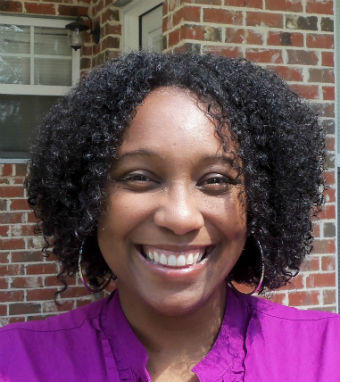
Section Branding
Header Content
A Tree Grows In Abu Dhabi
Primary Content

Angelique recently reached out to us as a result of hearing Southern Education Desk features on GPB radio. She is an educator who has experience as a homeschooling, public schooling, and private schooling parent. She is passionate about education at every stage, and believes that children are capable of far more than we adults give them credit for. Below she shares her insight into educational reform initiatives overseas.
I recently learned about a series of education reform initiatives taking place in Abu Dhabi, the capital of the United Arab Emirates. Recognizing the changing face of the world and acknowledging the need to place their youth at the forefront of this change, this wealthy Middle Eastern city is taking bold steps to ensure that its children have every competitive advantage to achieve in the future. The Abu Dhabi Education Council, or ADEC, has adopted a strategic plan designed to elevate both student performance and education delivery. Its purpose? To create a P-12 education system that is globally recognized and internationally competitive. To achieve this, this ADEC plan is focused on four primary areas, including: improving access to P-12 education, elevating the quality of [public] schools, providing affordable options for high-quality private education, and career development. At the heart of this reform is an underlying belief that ALL students are capable of learning, and that ALL students are deserving of a quality education. The end goal? To groom innovative ‘thought producers’ with a lifelong love for learning able to become active contributors to the world in which they live.
Abu Dhabihas have taken many steps to bring this program to life. New learning philosophies emphasize creative problem solving and independent thinking. Newly adopted teaching models empower teachers through the use of supportive administrative environments, integrated learning models, and varied teaching approaches. Newly adopted literacy models have even shifted the language of classroom instruction in this Arab nation. Instruction in core courses such as English, Science, and Mathematics now take place completely in English, globally considered “the language of business.” By taking such bold steps, the government of Abu Dhabi believes that its economic success will grow in turn through the increased ability to support national human capital needs via a well-prepared, well-educated workforce. The Abu Dhabi Education Council has even embarked upon a global teacher recruitment initiative, actively luring veteran teachers from English-speaking nations around the world to come to teach in Abu Dhabi in exchange for furnished housing, lucrative salaries, and free health care for themselves and their families.
As I continued to learn more about this program, I couldn’t help but wonder, “what if?”…
What if, here in America, we stopped the education system in fighting long enough to focus on how we could create a more internationally competitive workforce prepared to compete in today’s wireless global world rather than in the local agro-industrial society of yesteryear?
What if, here in America, we provided teachers with the economic support they needed in order to comfortably provide for themselves and their own families, indicating that we truly value the necessary service that they provide?
What if, here in America, we didn’t rest on the laurels of our wealth and prior accomplishments, but instead, continued to press forward in indentifying new ways to ensure that our K-12 education system enables our children to become active, thought-provoking, critical thinkers able to continue to help us press forward as a nation for generations to come?
Time will only tell whether the recently adopted series of educational reforms in Abu Dhabi will result in producing the desired outcomes for the current generation of students. However, one thing is for sure. In an oil-rich part of the world where petroleum is cheaper than water, where luxury is the norm rather than the exception, and where the highest per capita income of any city worldwide exists, Abu Dhabi could have easily chosen to rest on its laurels. It could have determined that change to its education system was not necessary. It could have turned a blind eye to the global reform taking place in the world around it. It could have taken the ethnocentric stance that its culture, its nation, its “tried and true” system of years gone by was good enough for its children. Instead, Abu Dhabi has chosen to recognize the need for change and to move forward.
As for us here in America, what if…?
Angelique recently rea





